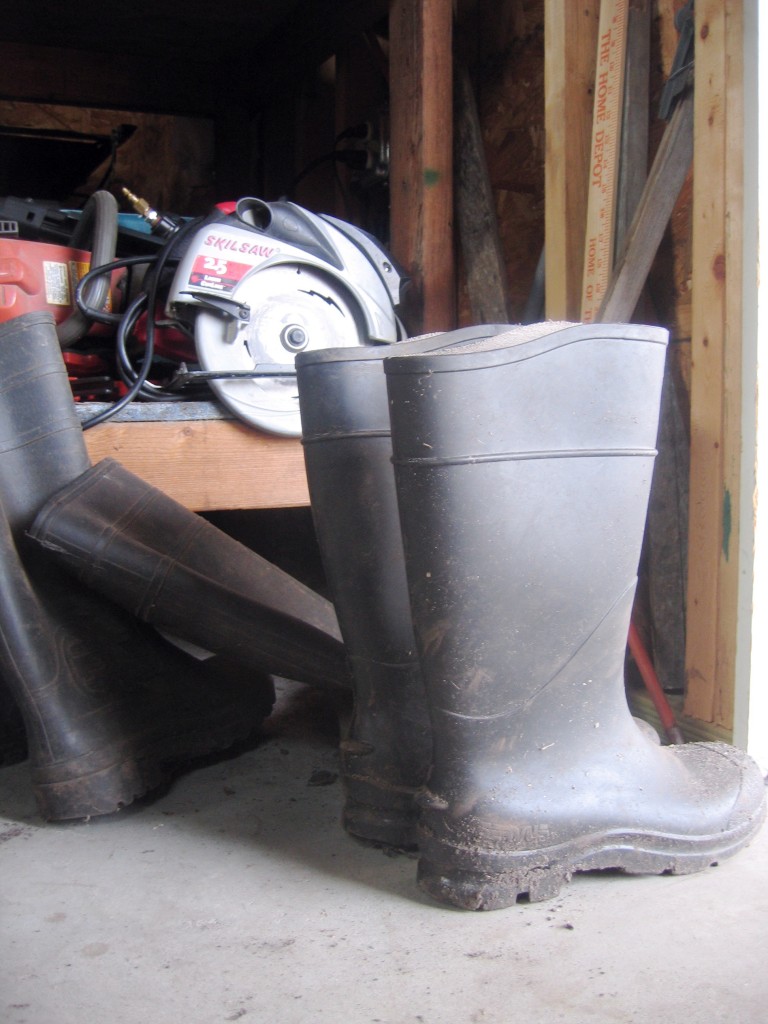Sweat and Satisfaction
It is an almost universally acknowledged fact that a man in possession of an item of food is in want of its origin. One can barely bring up the topic of last night’s dinner without someone bemoaning the fact that people don’t know where their food comes from. What they mean to highlight when they say this is the industrialization of our food system. By and large, not only do we no longer know the farmer who grew our food, we can’t even be exactly certain as to its continent of origin. And that’s true. A quick look around the produce aisle proves that most apples and garlic are from China, the asparagus is from Chile, and the raspberries are from God-knows-where. We could all get to know our food better, whether that means stopping by a farmer’s market or finally figuring out what’s killing the squash.
The bone I do wish to pick, however, is with the shallowness of the statement. “People don’t know where their food comes from,” is, at its core, a statement of geography. Nothing else. Concepts of terroir aside, we must recognize that food is more than geography. There is more than a where, there is also a how. People don’t know how their food comes to them. They have no idea the kind of effort, skill, and knowledge that goes into growing food.
Having not grown many plants since my third grade photosynthesis experiment, I used to be in that camp too. Whenever topics such as gardening or farming came up, I found myself alternating between one of two clichés. The first was that any kind of farmy manual labor was just that- labor. It evoked images of peasants scratching at the dusty earth with sticks, dreaming of a few gnarled potatoes. In this notion, farming is hard work, plain and simple. No ifs, ands, or buts. Farmers are to be pitied as they have obviously been cheated out of a better life somehow. And are too poor or too stupid to do anything about it. No thank you. I was perfectly content to let some unknown person tear my apples and cucumbers out of the earth.
Other times, however, I would find myself falling toward the other cliché. I thought that farming was something akin to magic. It conjured images of Peter Pan-ish farmers dancing across their fields as they sprinkled seeds that looked like glitter. Four months later they waltz back through the field and harvest baskets brimming with eggplants, tomatoes, and basil. Farmers are to be envied because they have somehow hoodwinked the gods into leading a charmed life. Inevitably, when under the thrall of this idea, I would go out and buy a pot of herbs or Gerbera daisies or something, committed to taking part in this lush part of life. Just as inevitably, my plants would shrivel or rot. I would grow tired of the failure and resign myself to a lush-less life. I was content to let some unknown person whisper my pumpkins and sunflowers out of the earth.
Mercifully, neither of these clichés is true. They are both just as hackneyed as the quiet mouse or the robin’s blue egg. In the last few years, as my life has come to revolve more and more around growing things, I have begun to realize what a farmer’s life is actually like. It’s true that’s its full of hard work. For us at City Roots, there’s lots of shoveling and sifting dirt for sprout growing, cultivating the fields (which is a nice way of saying ripping the weeds out), planting and replanting and re-replanting seedlings, and bending over sinks full of sunflower sprouts trying to cull the seeds hulls out. It’s also true that there is a little bit of magic in what we do. But it’s of a more common variety than waltzing fairies. The magic is this: When given the proper conditions, seeds will germinate and grow into plants. Given enough time, eggplant peels and apple cores become fertilizer. Chickens can turn dead fish into eggs.
Not one of us feels like we’ve been swindled and trapped in a life of drudgery; but neither do we prance around our fields sprinkling glitter seeds. There’s a middle ground that I’ve found hard to explain to people who are unacquainted with farm work (or were only acquainted with it as children). While I’m not a parent, I often compare it to having children. Kids are hard work. They run you ragged all day and still ask for another glass of water before bed. Any honest parent will tell you that. But, any honest parent will also tell you that they derive great satisfaction from their children. I imagine their must be moments of transcendence between parent and child. It’s the same way with farming. It’s hard, dirty, sweaty work. I often get dirt pushed so far under my nails that it hurts. But the thing that surprises me still is the personal satisfaction I get. While it is hard, dirty, sweaty work, the magic is in how pleasurable this life is.
Tags: Alfresco, City Roots, Thinkerings, Work

